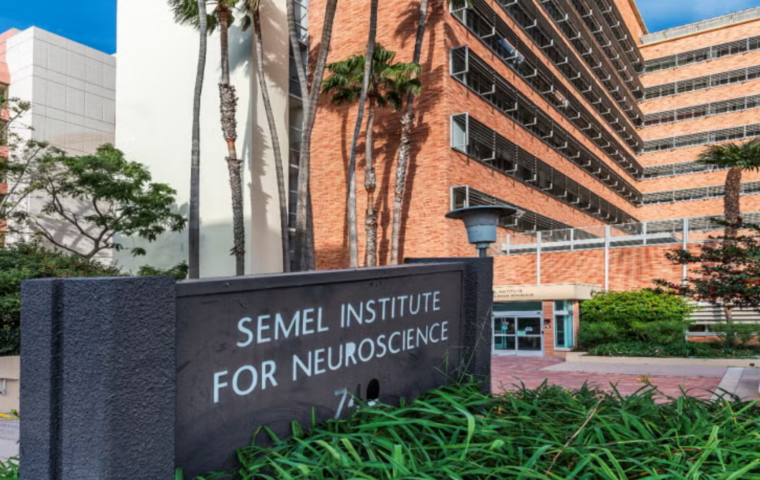Event
Lunch and Learn for Parents and Caregivers
October 22, 2025
The UCLA Nathanson Family Resilience Center hosts Lunch and Learns for parents and caregivers who have a loved one receiving mental health care at UCLA.
Learn MoreHelp us celebrate 50 years of the Semel Institute. Learn more
About Us
Featured
The UCLA Nathanson Family Resilience Center hosts Lunch and Learns for parents and caregivers who have a loved one receiving mental health care at UCLA.
Read MoreEvent
October 22, 2025
The UCLA Nathanson Family Resilience Center hosts Lunch and Learns for parents and caregivers who have a loved one receiving mental health care at UCLA.
Learn More
News
Semel Faculty and Researchers are well-known in their fields. See below for a selection of recent articles highlighting their work and expertise.
Learn More
News
Dr. Elizabeth Laugeson and the UCLA PEERS™ Program’s 20-week social skills program helps adults with autism learn how to find and maintain healthy romantic relationships. Much of the coursework focuses on building comfort in conversation, or, as the coaches call it, trading information One central skill taught is not to panic if there are extended silences. Hayley Ditter, 24, who…
Learn More
News
The UCLA Neuropsychiatric Institute (NPI) was founded in the post World War II era, as a research, education and treatment center with the mission to serve those citizens who suffer chronic psychiatric and neurological disease and behavioral disorder. Initially supported entirely by state funds from the California Department of Mental Hygiene, the Neuropsychiatric Institute, and the Hospital (NPH) that is integral to its provision of clinical care, opened their doors in 1961.
Learn More
News
Suma Jacob, MD, PhD is a distinguished child-adolescent-adult psychiatrist as well as a neuroscientist who is widely recognized for her research in neuroendrocrinology and neurodevelopmental disorders across the lifespan.
Learn More
News
This year, external gifts to the Semel Institute grew to $21.5M from $18M in 2023.
Learn More
Event
January 29-31, 2025 Live on Zoom 8AM to 5PM PT
For mental health professionals, school-based professionals, medical professionals, speech and language pathologists, occupational, recreational, and behavioral therapists, and other professionals who work with children 4-6 years of age with social challenges.
Learn More